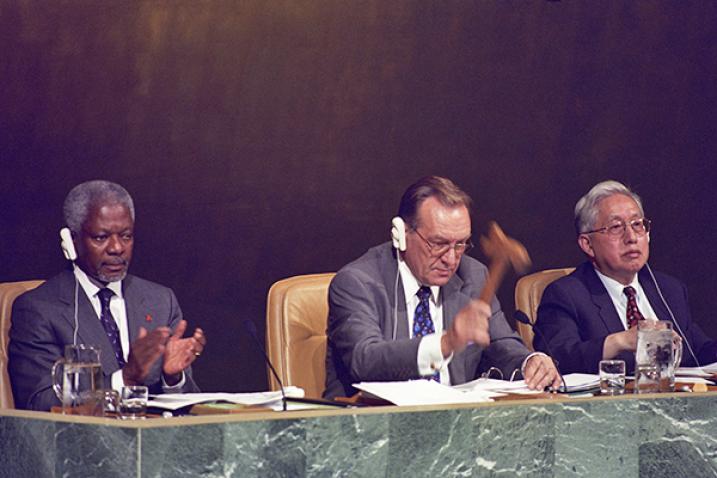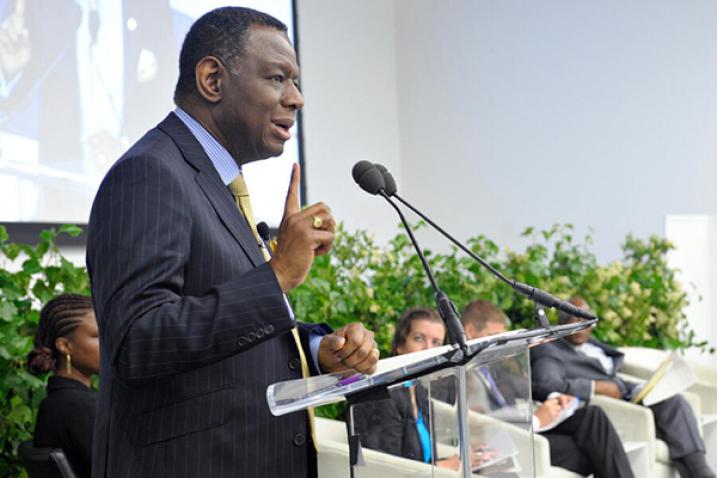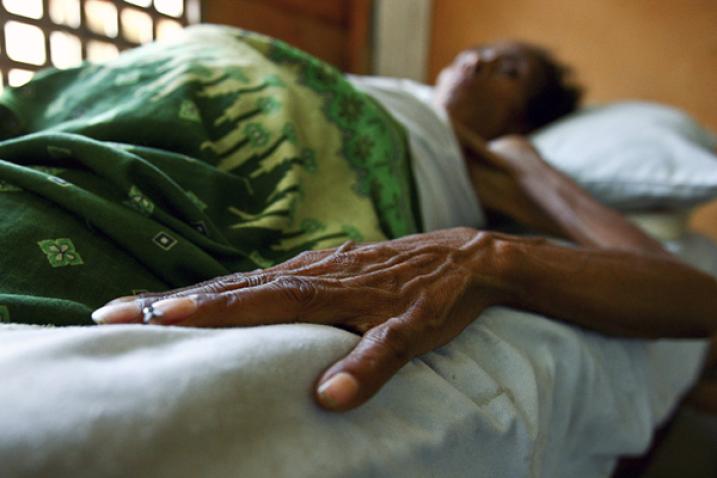A GA SPECIAL SESSION IN 2001 AND A FOLLOW-UP TEN YEARS LATER
The General Assembly held a Special Session from 25 to 27 June 2001 in order to secure a global commitment to combat the HIV/AIDS epidemic. In a Declaration of Commitment, Member States decided to address the HIV/AIDS crisis by taking action in the following areas:
- Leadership
- Prevention
- Care, support and treatment
- HIV/AIDS and human rights
- Reducing vulnerability
- Children orphaned and made vulnerable by HIV/AIDS
- Alleviating social and economic impact
- Research and development
- HIV/AIDS in conflict and disaster-affects regions
- Resources (meeting the HIV/AIDS challenged with new, additional and sustained resources)
- Follow-up
The Declaration concluded by stating “We recognize and express our appreciation to those who have led the effort to raise awareness of the HIV/AIDS epidemic and to deal with its complex challenges; We look forward to strong leadership by Governments and concerted efforts with the full and active participation of the United Nations, the entire multilateral system, civil society, the business community and private sector; And finally, we call on all countries to take the necessary steps to implement the present Declaration, in strengthened partnership and cooperation with other multilateral and bilateral partners and with civil society."
The 26th Special Session of the General Assembly in 2001 was a major milestone in the AIDS response. It was recognized that the AIDS epidemic had caused untold suffering and death worldwide. The UN Special Session also served to remind the world that there was hope - that with sufficient will and resources, communities and countries could change the epidemic’s deadly course. The theme 'global crisis global action' served to underline the need for urgent attention.
Ten years after the 2001 Special Session, and five years after a 2006 Political Declaration where UN Member States committed to moving towards universal access to AIDS prevention, treatment, care and support, a High-Level Meeting of the General Assembly was held in 2011 in order to take stock of progress and to shape the UN’s future HIV/AIDS response. At the 2011 meeting, Member States issued a declaration.
HIV/AIDS AND THE SUSTAINABLE DEVELOPMENT GOALS (SDGs)
In order to leave no one behind, the 17 UN's Sustainable Development Goals must be reached by 2030. The entire United Nations system, including UNAIDS, works towards achieving the entire Sustainable Development Goals agenda, which include 10 SDGs that are particularly relevant to the response to AIDS:
Goal 1: No poverty - (Poverty can increase vulnerability to HIV infection)
Goal 2: Zero hunger - (Hunger can increase vulnerability to acquiring HIV)
Goal 3: Good health and well-being - (Lack of universal health coverage restricts access to HIV prevention and treatment)
Goal 4: Ensure quality education - (The majority of adolescents and young people globally do not have accurate and comprehensive knowledge about HIV)
Goal 5: Achieve gender equality - (Gender inequalities, discrimination, violence and harmful practices negatively affect women, girls, men and boys and increase the risk of HIV infection and its impact)
Goal 8: Decent work and economic growth - (Safe and secure work environments facilitate access to HIV services)
Goal 10: Reduce inequalities - (Income inequality is linked to higher HIV prevalence)
Goal 11: Sustainable cities and communities - (HIV especially affects cities and urban areas)
Goal 16: Peace, justice and strong institutions - (Exclusion, stigma, discrimination and violence fuel the HIV epidemic among adults and children)
Goal 17: Revitalize the global partnership for sustainable development - (Global collective action to improve access to affordable HIV commodities is critical to ending the AIDS epidemic)
UN/AIDS AND WORLD AIDS DAY
The Joint United Nations Programme on HIV/AIDS (UNAIDS) is leading the global effort to end AIDS as a public health threat by 2030 as part of the Sustainable Development Goals. Since it started operations in 1996, UNAIDS has led and inspired global, regional, national and local leadership, innovation and partnership to ultimately consign HIV to history. UNAIDS is a problem-solver. It places people living with HIV and people affected by the virus at the decision-making table and at the centre of designing, delivering and monitoring the AIDS response. It charts paths for countries and communities to get on the Fast-Track to ending AIDS and is a bold advocate for addressing the legal and policy barriers to the AIDS response.
UNAIDS has shaped public policy on HIV at the global, regional and national levels. It has mobilized investment for sound national policy using evidence, experience and political advocacy, built health and community systems, established legal frameworks and shaped public opinion towards creating healthy and resilient societies. The UNAIDS Secretariat has offices in 70 countries, with 70% of its staff based in the field.
Each year, on 1 December, the world commemorates World AIDS Day, the first ever international day for global health, which was founded in 1988. On World AIDS Day, people around the world unite to show support for people living with HIV and to remember those who have died from AIDS-related illnesses. United Nations agencies, governments and civil society join together to campaign around specific themes related to HIV.
Documents
- 2001 : Report of the Secretary-General (A/55/779)
- 2001 : Summary of Declaration of Commitment (UNAIDS)
- 2001 : Declaration of Commitment (WHO booklet)



